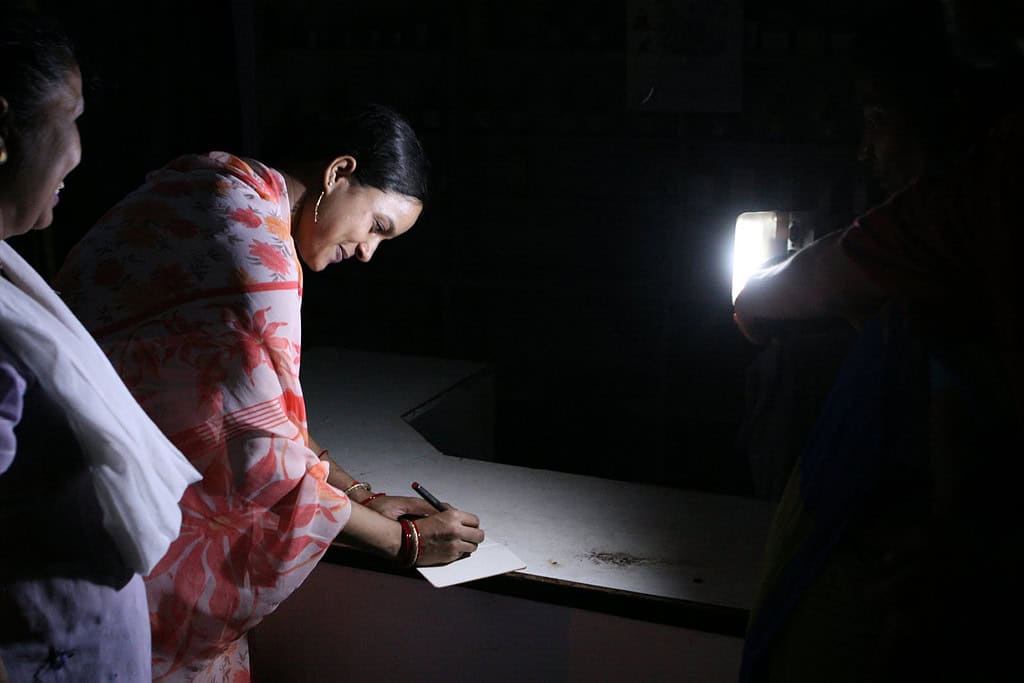Pioneer Energy Investment Intiative (PEII)
Partnering for energy access
- Case Study
- Renewable energy
- Cross region

Pioneer Energy Investment Intiative (PEII) was a $22 million program which made equity investments to support energy access entrepreneurs developing solar home systems, mini-grids, and productive uses of energy.
The problem
When we launched our Pioneer Energy Investment Initiative (PEII) in 2017, over one billion people did not have energy access, and three billion people cooked with dirty fuels. Some new ideas were starting to show traction, such as pay-as-you-go solar, and innovations in mini-grids were starting to show promising results.
Since 2007, when Acumen first invested in energy for those living in poverty, our investments have shown us the huge impact these innovations can have. Access to clean light, efficient cooking, and energy to power livelihoods could significantly improve the lives of those living in poverty.
Despite this, few companies were able to raise significant capital, meaning more creative models were needed to push the bounds of affordability for the poor, expand into new geographies, and innovate around technology for productive uses of energy. Ten years into our investing journey, we saw an opportunity to drive more capital into off-grid energy access, build a robust sector, and unlock the next wave of business models.
The solution
The PEII program was founded on the premise that equity investments, unlike grants, create stronger companies with more robust governance, which make lenders more comfortable with providing the debt needed to scale operations. We also saw a need to engage at the sector level by working with stakeholders from governments, foundations, and corporations, to drive more capital and support to emerging entrepreneurs who could close the energy access gap.
Thus, Acumen launched PEII in 2017, bringing to life a $22 million, five-year program aiming to:
- invest in (and thus derisk) emerging business models in risky geographies
- support companies led by entrepreneurs with a commitment to serving the poor; and
- elevate the lessons that we learned through thought leadership in the sector.
This program was established as a restricted philanthropic vehicle that acted similarly to a fund, with a clear theory of change and coherent investment strategy. This enabled us to take early-stage risk and provide robust accompaniment, while modeling the rigor of a close-ended fund. In addition to investing, PEII focused on scaling energy enterprises with hands-on technical assistance and management support, capturing customer feedback and impact data, collaborating with peers and co-investors, and sharing insights through reports, newsletters, and convenings.
The impact
Under PEII, Acumen made 12 early-stage investments totaling $13.5 million across East and West Africa, India, and Latin America. By the end of 2021, PEII companies had impacted over 1.25 million people with energy access through the sales of 320,000 products. 40% of these customers lived under the poverty line. Through our investments, 167,000 metric tons of carbon had been avoided in emerging markets. Moreover, these 12 companies leveraged our invested capital by raising an additional $128.4 million since 2017, which represents a multiple of 9.5x.
Through the products and services our portfolio companies provide, 68% of customers reported their quality of life had very much improved, with 55% accessing such a product or service for the first time. Customer satisfaction was high across the portfolio, with 77% of customers rating their energy product or service as good value for money, and an average Net Promoter Score of 48 aligned with the benchmark for the energy access sector.
“I think that Acumen is truly mission-driven to really revolutionize the sector and make a transformative impact. And I think a lot of other investors are like, ‘it’s a job.’ It’s a nice-to-have, but it’s not so deep in their bones. So I think that’s a big difference.”
Energy CEO (from anonymous survey)
The story
PEII marked the first time that Lean Data was incorporated systematically into the due diligence process of Acumen’s investments. Lean Data is an approach first pioneered by Acumen to assess impact based on the lived experience of end-users themselves through speaking to customers directly. Prior to investing in a company, Acumen commissioned 60 Decibels to survey between 50-150 customers to ask about the company’s product or service, the difference it had made in their lives, and whether they would recommend the company to others. We also asked the customers about themselves to understand their situations, expectations, and experiences.
Added together, the responses were invaluable in understanding the breadth and depth of impact that enterprises had on their customers, as well as those customers’ satisfaction (or lack thereof). For example, when evaluating an investment with a solar distributor operating in remote areas of East Africa, we learned that 41% of their customers already had access to similar products, making our potential investment in this company less impactful and catalytic. Moreover, 52% of customers reported experiencing challenges with the system, and as a result we decided not to invest. Without this customer-level knowledge, Acumen might have invested its precious Patient Capital into a company that delivered only marginal impact.
Assessing impact through speaking directly to end-users also allowed us to assess companies based on their depth of impact, rather than just the number of units sold or connections made. This highlighted the challenge of making comparisons between mini-grids and solar home systems.
“I think in leveraging funds and companies, Acumen cracked the model. On the funder side, Acumen made people join hands. The way Acumen structures its funding – how to do due diligence and follow on – is very effective.”
Yue Cui, Director, Signify Foundation
Acumen was drawn to mini-grid models because of their strong poverty focus. According to 60 Decibels, mini-grids serve the highest proportion of low-income families compared to other off-grid energy providers, with a poverty reach of 51%. But while mini-grids have demonstrated an outsized ability to serve the poor from a percentage perspective, the absolute number of people served by mini-grids pales in comparison to that of solar home systems (SHS) models. Our first two PEII investments in SHS companies reached 4.6x more people than our mini-grid companies over the same period. This makes sense given the difference in models: SHS companies are selling and financing consumer products, while mini-grid companies are building durable electricity infrastructure, which can cater to a wider range of consumer uses over a longer period of time.
These studies are also valuable beyond our initial investment decision. Companies receive customer feedback on a scale they have never seen before, and this enables us to support our new portfolio companies to improve their products and services to better meet the needs of their customers.
In one example, our initial diligence highlighted a very low Net Promoter Score of -5 (a sign of customer dissatisfaction) and a high rate of challenges. However, we believed in the team and their solution. We proceeded to invest and support the company to improve their call center and customer resolution response. This resulted in the company’s NPS improving to 51 within two and a half years. Lean Data enabled us to both diagnose a business issue and track its resolution. Overall 88% of the CEOs who received a Lean Data report found it valuable to their business.
Read more about PEII in our report Bridging the Gap.
Explore
Learn more about how we solve problems of poverty unlike any other investor on the planet.
d.light
Acumen fuels d.light’s rise as a top solar firm, bridging the global energy gap



